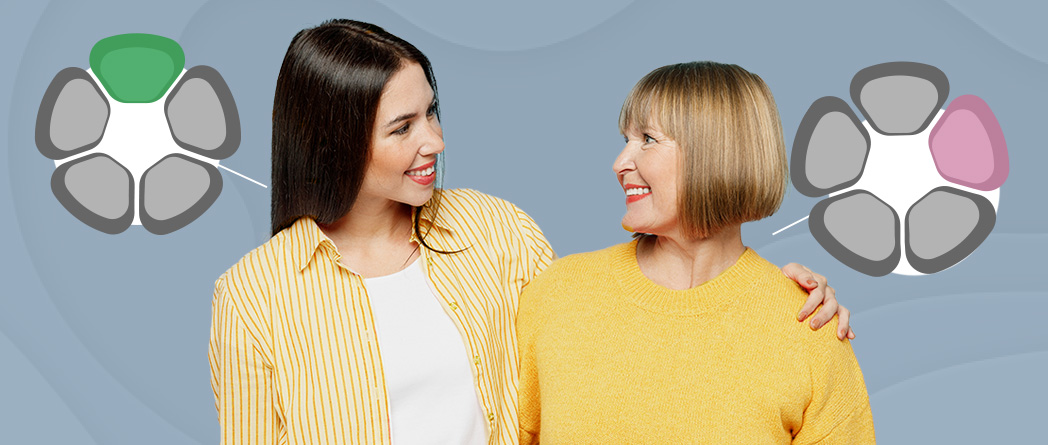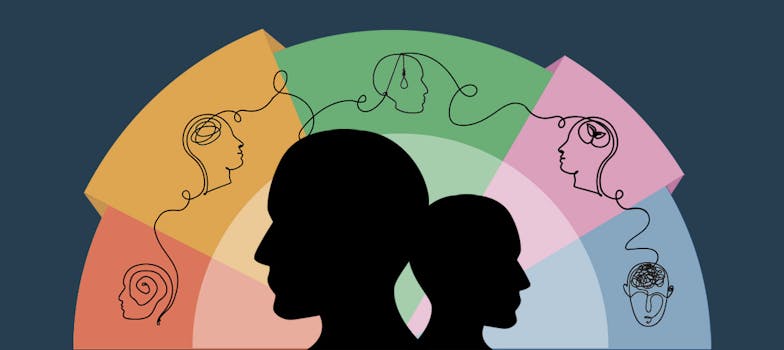“Growing up” isn’t just about getting a job, living on your own, or perhaps finding love. The older I get, the more it’s clear that part of the process is realizing that your parents aren’t just your parents. They’re also human — people with their own dreams and motivations.
For years, I saw my parents only from the perspective of the interactions we had together. Like any kid, I naively thought that when they made rules I didn’t agree with, it was for a silly reason (even when they told me otherwise).
It was right as I was finishing college that I came across the Big Five personality model and the ideas behind it. According to this framework, human behavior is measured by five dimensions plus their counterparts. During my journey through adulthood, this model helped me contextualize their actions and strengthen my relationship with them.

Strengths and weaknesses of your trait are two sides of the same coin
All of us have strengths and weaknesses, and the Big Five explores both, making me more able to understand why my parents act the way they do. Take my dad: he’s a cookie-cutter Conscientiousness type.
When I moved abroad, my dad’s Conscientiousness strengths jumped in to help me. He’s the most organized person I know, and he doesn’t leave things up to chance. When he found out the neighborhood I’d be living in, he made a detailed list of all the hotspots: grocery stores, doctors’ offices, even hotels for when he’d come visit! Of course, the part of him that prepared so diligently was the same that had him grinding his teeth when I opened a bank account other than where he suggested.
I look back at that list he made with a smile on my face since it’s so obvious how Conscientiousness was behind it.
The flip side of the coin
The Big Five also helped me understand the “why” behind my parents’ weaknesses.
When I was working on my Bachelor’s, my mom was my biggest cheerleader every step of the way. Three years in, she and I butt heads after I changed my degree away from business and into writing, and she fought hard to talk me out of it.
Now that I know her type is Competitiveness, it makes sense. On one side of her trait, she saw her own version of success to be the best, which is why I shouldn’t leave the business school: a surefire path to success. But on the other side of her trait was her desire to teach me to defend myself and give me the tools I needed to make it out in that big world.

Understanding my parents
Knowing my parents’ types gave me an understanding for the motivations behind their actions, and it can offer you the same kind of clarity! The Big Five can work like a tool to help us decipher those around us, helping us see them in a new, more compassionate light. But it can also help in other ways.
For example, if their trait is Consistency, then they’re likely to feel uncomfortable with big changes. Now you’re better prepared to break the news to them that you’re changing jobs. Or maybe their trait is Introversion, so you understand exactly why their next birthday party wouldn’t be enjoyed in a karaoke bar.
Decoding behavior with the Big Five
I know how lucky I am to have parents who do things from a place of love even if they don’t always show it in ways that are obvious to me. As much as the Big Five helped me decipher my parents’ behavior, just as importantly, it’s helped me understand my own strengths and weaknesses and how to better relate to people whose traits are different than mine.
If you’re curious about your (or your parents’) traits, why not try out TerraYou’s Big Five Test yourself and start your own journey to discover more about your unique personality type?

